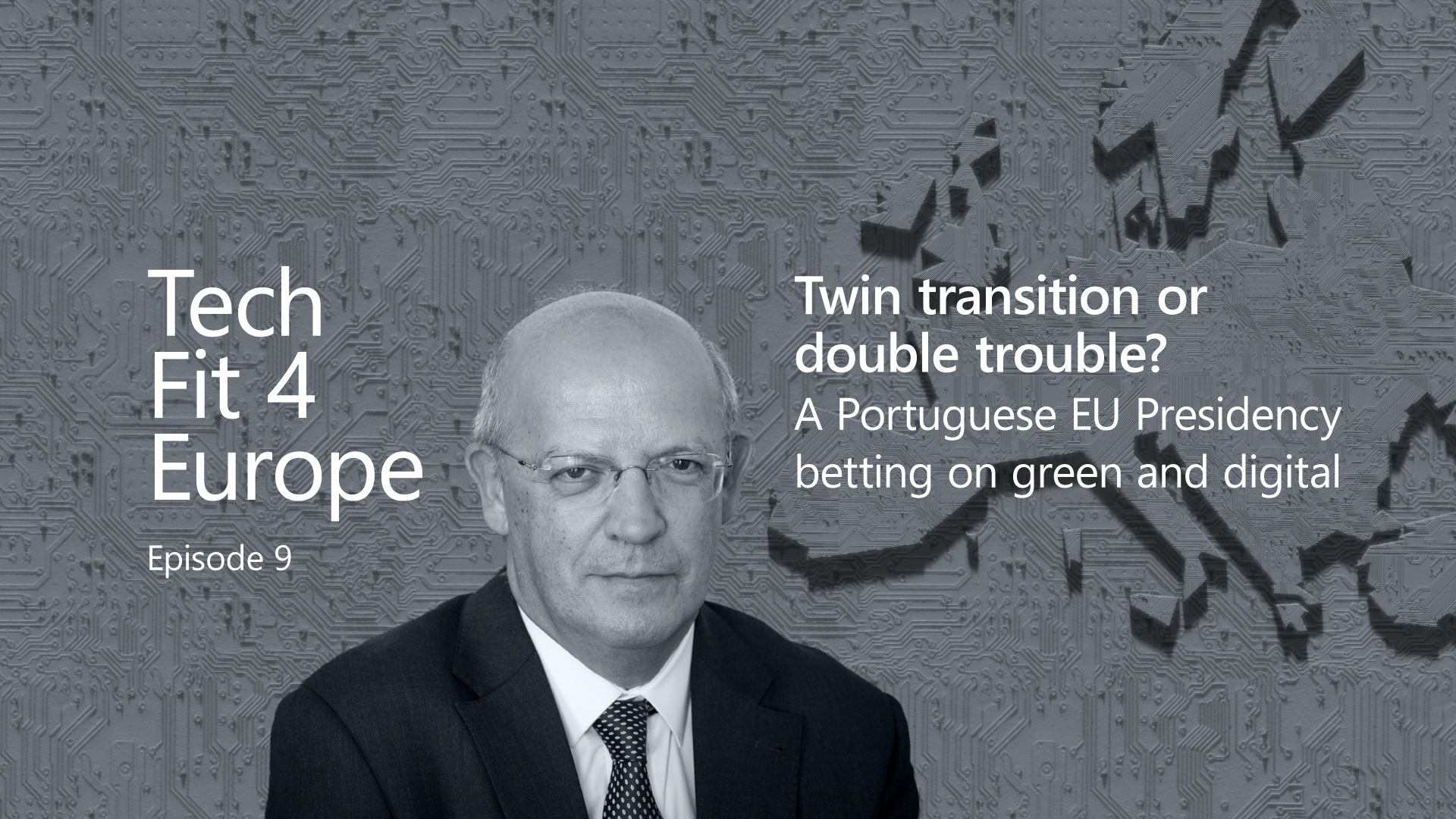Although many European countries are still in lockdown, focused on managing the rollout of vaccines, more attention is being given to the economic recovery and the transition to a digital and green economy.
This shift in focus coincides with Portugal holding the Presidency of the Council of the European Union. Portugal’s Foreign Minister Augusto Santos Silva joins Casper Klynge on the #TechFit4Europe podcast, to discuss the key elements to achieve this transition, as well as technology and the foundations of democracy.
Here are five takeaways from their conversation.
1. It’s easier to close the digital divide than the infrastructure divide
“The digital divide is one of the main fractures of our world. But you can overcome the digital divide using digital means that are much less costly than the alternative means,” explains Santos Silva.
The EU wants to bring high-speed broadband to 70% of Member States’ populations by 2025. And Portugal, during its Presidency, will inaugurate the Ellalink to connect data streams between Europe and South America.
“Digital highways are less costly than roads – the other kinds of connectivity,” Santos Silva says. “If you invest in digital connectivity, you can have results that are faster and less expensive.”
2. Reindustrialization is required, alongside a rebalancing of trade relations
The pandemic has shone a spotlight on global value chains. Global trade was severely impacted in the aftermath of the closures and lockdowns of early 2020, and this has led to calls for a reindustrialization of parts of the economy, with some manufacturing returning to national and regional locations. In turn, this could lead to a rebalancing of trade relations, reversing a decades-long trend of outsourced production and ushering in an era of a greater degree of ‘strategic autonomy’.
“We want to be more sovereign in terms of our economic resilience. And this was one of the main lessons learned from the pandemic,” Santos Silva explains.
“We have to shorten the value chains, we have to reindustrialize Europe. Europe has to have full control on the production and the supply of goods that we can see as basic goods. Then, we have to rebalance our trade relations to the world.”
3. Further economic stimulus may be needed for the recovery and ‘double transition’
To tackle the health, social and economic crises the pandemic has brought, the EU has an unprecedented recovery plan – its largest-ever stimulus package. But it is not just about achieving this ‘triple goal’ of recovery – it’s about sustainability and modernization, too.
“It is not only an issue of recovery. We have to, at the same time, transform our economy. That’s why we speak of the double transition. So, we have a triple goal to recover the economy as fast as we can – transforming it into a more digital economy and ‘greening’ it,” says Santos Silva.
“But we have to be flexible enough, because if the economy is still not recovering because of the lockdown measures next spring or next summer, eventually we shall have to add new financial resources to the ones that we are currently implementing.”
4. Member States can help each other meet climate goals
Europe wants to become the first climate neutral continent through its European Green Deal. But not all EU Member States are starting this journey from the same place.
“It takes hundreds of hours, dozens of meetings, to find the landing zone in which we can meet each other,” Santos Silva explains. “This was particularly difficult because you know there are countries [where] coal is still the main source of energy.”
Some countries have already made substantial progress, and if one has specific difficulties in meeting those targets, others can help.
“But our method is always to try to define common goals, decarbonize our economies by 2050, and then address the specific difficulties of each of us in pursuing this goal,” Santos Silva says.
5. Digital is an indispensable tool for reskilling the workforce
The European Commission is working on a digital transformation to empower its citizens, strengthen business and meet global challenges. One of its new targets is to offer professional training to 60% of the adult population each year by the end of the decade. This will only be possible through digitalization.
“Digital is now an indispensable tool when you think of education, when you think of massive programs of vocational training,” Santos Silva says.
“So reskilling, upskilling, and acquiring the new competencies. You cannot do this if you do not also use the wonderful power of the digital technologies and communication technologies and their platforms.”
Available on Spotify | Apple Podcasts | Google Podcasts | RadioPublic | Libsyn | RSS

